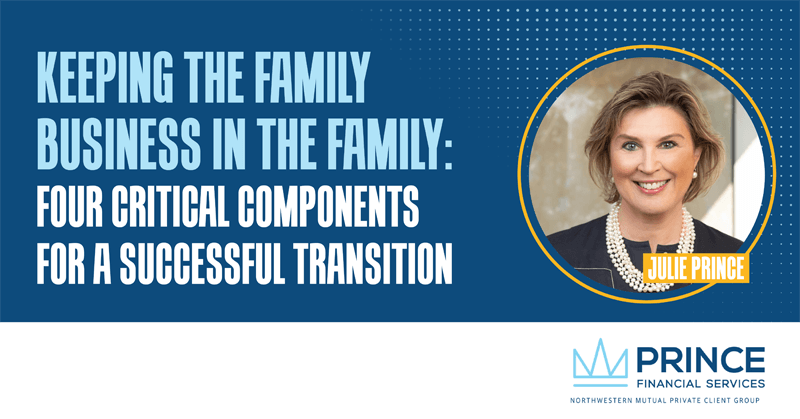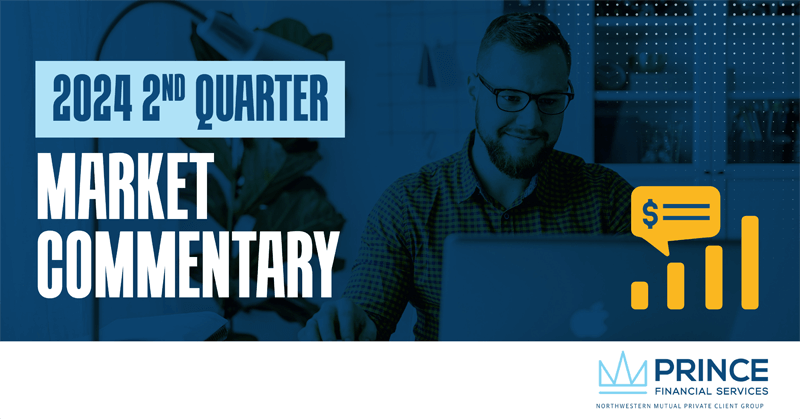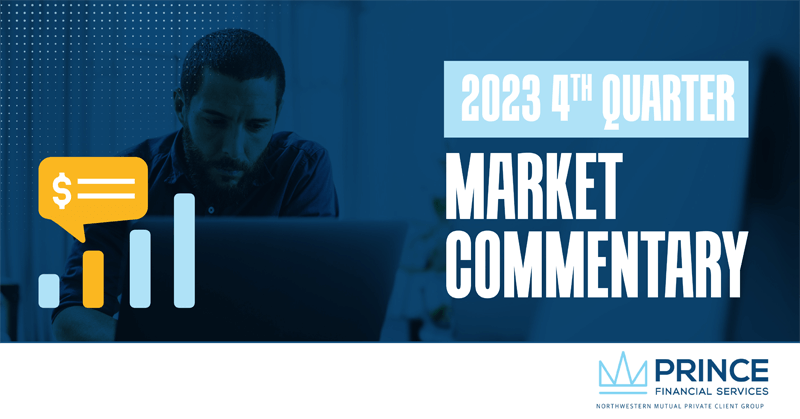2023/2024

Keeping the family business in the family with a smooth and equitable transition is possible, even with complex family dynamics, economic fluctuations and ever-changing tax laws.

Have you heard of the 1970s Stanford marshmallow experiment? This fascinating study on delayed gratification involved children who were given a choice: eat one marshmallow immediately or wait a few minutes and receive two marshmallows. The study, which entailed years of follow-up studies conducted after the initial data analysis, revealed that those who waited for the second marshmallow had better life outcomes, such as happier marriages, more successful careers and longer lifespans, while the children who immediately ate one marshmallow experienced lower academic achievement, poorer health and lower SAT scores. In other words, an individual’s ability to delay gratification was associated with more success and quality of life outcomes overall across a range of life measures.
If we think about this in the context of retirement planning today, we can deduct some valuable lessons from it. For instance, knowing that the ability to delay gratification was a critical indicator of long-term success, we can safely assume that the children who delayed gratification for the second marshmallow tend to be the same individuals who are better savers. This, in turn, begs the question that everyone should ask of themselves regarding their own financial habits: Which "kid" am I? And which type of "kid" do I want to be moving forward?
The Consequences of Immediate Gratification
Those who couldn't wait for the second marshmallow are often the ones who struggle with saving money throughout their working career, and may end up relying mostly on Social Security and possibly a pension. These future retirees tend to face challenges in retirement due to their lack of savings and habitual overspending.
Unfortunately, considering fixed expenses such as Medicare, real estate taxes, insurance, utilities and other costs, this amount may not go as far as you think, leaving little room for the enjoyable aspects of retirement. Ultimately, people who immediately eat their marshmallow may have to cut back on their accustomed lifestyle in retirement, which is extremely difficult to do.
The Challenges of Delayed Gratification
Even so, those who practice delayed gratification are not without their own struggles. For instance, these individuals may often find it difficult to spend ‘enough’ money in retirement because they are accustomed to saving. They feel uncomfortable spending money they could be enjoying, instinctually experiencing an urge to save despite having the freedom to spend.
Breaking a 40-year habit can be quite challenging. Even while these retirees have saved diligently and can now fully enjoy everything they envisioned for retirement, whether it's traveling, spoiling grandkids, enjoying hobbies or entertaining, transitioning from a saving mindset to a spending one is tough. Many retirees use their pension, Social Security and other guaranteed incomes, but are too timid to adequately spend and drawdown on their investable assets.
Strategies for Confident Spending
So, now that you have a better understanding of what type of “kid” you are, you can start building a strategy for confident spending.
An effective way to confidently spend money is through education, planning, and normalizing cash flow. Just as those who waited for the second marshmallow to delay gratification for a greater reward, retirees can learn to balance their saving habits with a healthy spending mindset. By quantifying your own retirement spend rate in the best- and worst-case scenarios and providing yourself with a clear understanding of your financial well-being, the stress associated with spending tends to be alleviated. A financial professional can help educate you in this regard by assessing your retirement plan’s success rate based off your desired income and help you plan appropriately, which can have a positive impact on your retirement lifestyle and overall happiness. What’s more, creating a constant paycheck with your investable assets to fulfill your desired income needs can help alleviate the psychological fear of running out of money, as it mimics the regularity of your pension, Social Security and past paychecks.
Planning for a Fulfilling Retirement
Each type of retiree has their own unique challenges and opportunities when it comes to managing their finances and it’s important to recognize what your unique obstacles are. Whether you are a diligent saver, an over spender or someone in between, a financial professional can help you plan and manage your retirement finances now and into the future, which can greatly impact your overall retirement experience. The bottom line is that while you may have been the “kid” who opted for one marshmallow, knowing what type of kid you want to be going forward can make all the difference in setting you up for long-term success.

The much-anticipated rate cut finally occurred in the 3rd quarter, providing relief with a larger-than-expected 0.5% reduction. This sparked optimism and broad gains across major asset classes. Unlike recent quarters where the "Magnificent 7" tech giants led the S&P 500, “the other 493” stocks drove the index higher this time. The other equity classes also outperformed the S&P 500 overall.
Read more here.

As the Puget Sound broke heat records this last quarter, so did the US large-cap equity market. The recent quarter’s returns were driven solely by the six largest companies, while the other 494 in the S&P 500 had negative returns. With these six companies making up 31% of the index, the market index is far from diversified. Historically, broad-based participation results in higher returns with less volatility.
This concentration isn’t sustainable, but it is explainable. With a weakening economy this last quarter, investors focused on companies they perceive as recession-proof stocks and relied on recent performance trends associated with the AI buzzword.
History doesn’t repeat but often rhymes, and this situation resembles the late 1990s when a few mega-cap stocks drove the market up. Ironically, in late 1999, as interest rates faltered, and a recession became apparent, other market sectors began to outperform.
Currently, 2.5 years into this rate hike cycle, signs of a recession are emerging. Unemployment has moved up from a low of 3.4% to 4.1%, and economic data continues to weaken. While this trend helps combat inflation, it increases recession risk the longer rates remain elevated.
Now comes the key balancing act. How much and when is the right time for the Fed to cut rates to avoid a recession, but not too early to prolong inflation? Whether the Fed gets it right or wrong, sticking to a long-term financial plan and staying invested and diversified, even in areas that haven’t done well, remain the core tenets we believe to create and maintain financial security.
For more information, please read our commentary from Brent Schutte, our Chief Investment Officer - Northwestern Mutual's 2nd Quarterly Market Commentary

As 2024 began, expectations for six Fed rate cuts have dwindled to three, with doubts emerging about any cuts materializing. This shift reflects the economy's resilience and the persistence of "sticky" inflation. The Fed's delicate balancing act persists cutting rates prematurely risks reigniting inflation, while prolonged high rates may trigger a recession. We maintain our forecast that inflation is not yet sustainably on the path to 2 percent. Consequently, the Fed is likely to maintain elevated interest rates, which could gradually erode the strength of U.S. consumers and corporations. Combined with indicators suggesting a later stage in the economic cycle, we foresee continued recession risks for the U.S. economy throughout 2024.
Although equity markets typically mirror economic trends, the market's divergence is notable, largely driven by the dominance of the 'Magnificent 7' mega-cap tech stocks, now comprising nearly a third of the total index. While these stocks have soared, their overvaluation raises sustainability concerns. Historical analysis indicates that top S&P500 companies have underperformed an equal-weighted basket of the same index over the last 65 years. This reiterates the point that what has worked, doesn’t always continue to work over the intermediate to long term.
Diversifying across the ‘other’ S&P500 companies, mid & small caps, and international markets offer substantial opportunities, given current valuations. Additionally, fixed income investments present enticing opportunities, boasting yields unseen in decades, particularly in anticipation of the Fed's rate cuts.
In essence, predicting recession timing is challenging, but embracing diverse asset classes can help fortify investors against short-to-moderate economic downturns and position them for robust recovery.
You can read more from our Chief Investment Officer, Brent Shutte here: Why Sticky Inflation Is Making Things Difficult for the Fed | Northwestern Mutual

Last year was a great year to be invested and a reminder that headlines don’t drive returns. Some events that occurred in 2023: bank failures, continued historic interest rate hikes, inflation and recession concerns, war abroad, unemployment rate and wage growth both being a good and bad thing, and a frenzy around how AI is going to change the world. 2023 was a busy year.
Still, inflation, wage growth, and recession concerns are headlining 2024. However, the data is trending in a positive direction. If we remove shelter, a large, but lagging data point, year over year, 4th quarter inflation was up only 3.4% and trending closer to the Fed’s 2% goal.
The Fed is still fixated on elevated wages. Before we see any interest rate cuts in 2024, we anticipate there needs to be a decline in wage growth. This can be done with an increased participation rate and/or an increase in unemployment rate.
Lastly, the recession that everyone is talking about may have already occurred. Most economists define a recession as two negative quarters of GDP growth. Using that definition, we were in a recession in the 4th quarter and experienced another back in 2022. This alludes to what we refer to as rolling recessions; shallow, quick recessions.
We cannot predict if or when a recession occurs, but what we do know is the stock market typically rebounds well before one is declared, making it hard to time the market. This was evident with the positive market returns we saw in 2023, especially a very strong finish towards the end of the year.
If the 2023 headlines were cause for concern, you would have missed out on those returns, which is why we always recommend staying the course and committed to your financial plan for the long term, regardless of what headlines 2024 brings.
To read further, here is Northwestern Mutual's 4th Quarter Market Commentary from our Chief Investment Officer, Brent Shutte.